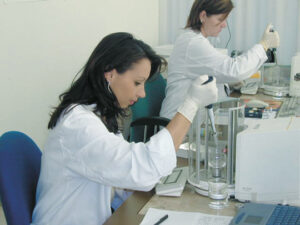Calibration is a critical process in ensuring the accuracy and reliability of measurement instruments. However, an often overlooked aspect of this process is understanding the uncertainties associated with these measurements. Here’s an in-depth look at how uncertainties relate to calibrations and why they are vital to your operations.
Understanding Measurement Uncertainty
Measurement uncertainty is a quantifiable doubt about the result of a measurement. It encompasses all the possible errors that could affect the accuracy of your measurement. In the context of calibration, it refers to the range within which the true value of the measurement lies.
Sources of Uncertainty in Calibration

By quantifying and minimizing uncertainties in calibration, you can improve the quality of your measurements, comply with industry standards, and make more informed decisions.
Several factors contribute to the uncertainty in calibration measurements:
- INSTRUMENTAL FACTORS: Imperfections and limitations in the measuring instrument itself.
- ENVIRONMENTAL CONDITIONS: Variations in temperature, humidity, and other environmental factors that can affect measurements.
- MEASUREMENT METHOD: The procedures and techniques used during the calibration process.
- HUMAN FACTORS: Operator skill, experience, and potential for error.
- REFERENCE STANDARDS: The accuracy and uncertainty of the standards used to calibrate the instrument.
The Importance of Quantifying Uncertainty
Quantifying uncertainty is essential for several reasons:
- ACCURACY AND RELIABILITY: Knowing the uncertainty helps you understand the level of confidence you can have in your measurements. It ensures that your results are as accurate and reliable as possible.
- COMPLIANCE AND STANDARDS: Regulatory bodies and quality standards often require the estimation and reporting of measurement uncertainties. This is crucial for compliance with ISO/IEC 17025:2017 and other industry standards.
- RISK MANAGEMENT: By understanding and managing uncertainty, you can make better-informed decisions and reduce the risk of errors that could lead to costly mistakes or non-compliance.
- IMPROVEMENT AND OPTIMIZATION: Analyzing the sources and magnitude of uncertainty can help identify areas for improvement in your measurement and calibration processes.
How to Manage Uncertainties in Calibration
Managing and minimizing uncertainty involves several best practices:
- REGULAR CALIBRATION: Ensure that your instruments are regularly calibrated by an accredited service provider like The Scale People. Regular calibration helps maintain the accuracy of your instruments and minimizes uncertainty.
- ENVIRONMENTAL CONTROL: Maintain controlled environmental conditions during the calibration process to reduce variability.
- STANDARDIZED PROCEDURES: Use standardized and documented procedures for calibration to ensure consistency and repeatability.
- TRAINING AND COMPETENCE: Ensure that personnel involved in the calibration process are well-trained and competent.
- QUALITY REFERENCE STANDARDS: Use high-quality, traceable reference standards with known uncertainties.
The Role of The Scale People
At LAB PEOPLE/THE SCALE PEOPLE, we understand the complexities and importance of managing uncertainties in calibration. Our ISO/IEC 17025:2017 accredited services ensure that your equipment is calibrated with the highest level of precision and reliability. We provide detailed uncertainty budgets with our calibration reports, giving you a clear understanding of the confidence level in your measurements.
Conclusion
Uncertainty is an inherent part of any measurement process, but understanding and managing it is crucial for ensuring the accuracy and reliability of your calibrations. By quantifying and minimizing uncertainties, you can improve the quality of your measurements, comply with industry standards, and make more informed decisions. At LAB PEOPLE, INC., we offer comprehensive calibration services that help you manage and reduce measurement uncertainties, ensuring the highest standards of accuracy and reliability.
Let us assist you in achieving precise and reliable measurements. Request service at LABPEOPLE.COM
For more information about how we can assist you, visit our website, email us, or call us at 1-800-296-2001!
